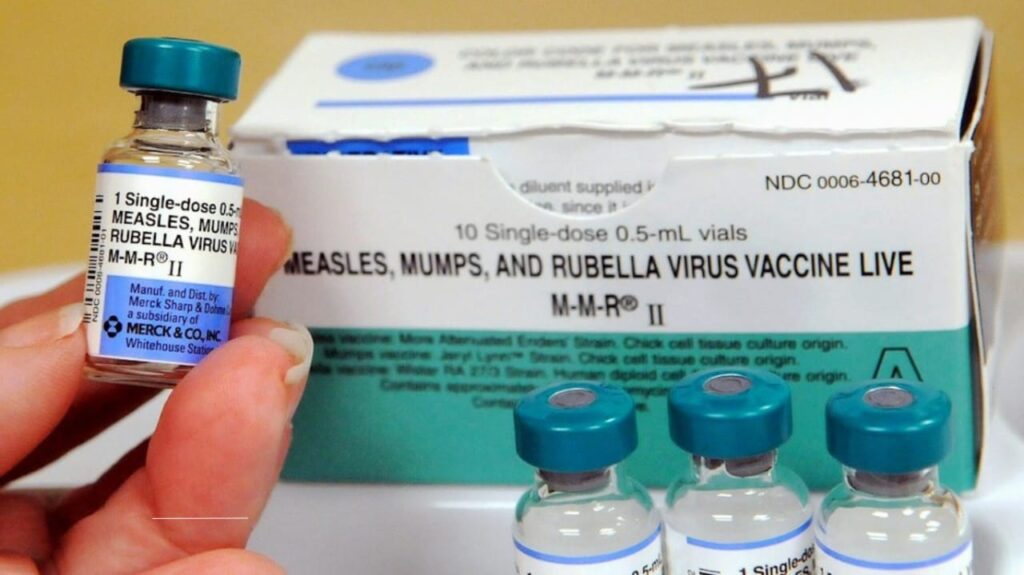
Photo Credit: Getty Image
Measles, once considered a disease of the past, is making an alarming comeback. In 2023, the Centers for Disease Control and Prevention (CDC) reported a 30% global increase in cases compared to the previous year. This highly contagious virus spreads through coughs, sneezes, or even lingering in the air, making it a significant public health threat. The good news? Vaccination remains our strongest defense. Let’s break down what you need to know about measles immunity, booster shots, and staying protected.
How the MMR Vaccine Works: A Simple Explanation
The measles, mumps, and rubella (MMR) vaccine is a two-dose powerhouse. It teaches your immune system to recognize and fight the virus without causing the actual disease. Here’s how it works:
- First Dose: Given at 12–15 months of age, it provides about 93% protection.
- Second Dose: Administered between ages 4–6, effectiveness jumps to 97%.
Dr. Sarah Park, an epidemiologist at the University of Hawaii, explains, “The vaccine mimics a natural infection, training your body to produce antibodies. These ‘memory cells’ stay on alert for decades, ready to attack if the real virus shows up.”
Who’s at Risk? Key Groups to Consider
While measles can infect anyone, certain groups face higher risks:
- Unvaccinated Children: The majority of recent U.S. outbreaks (like the 2019 surge with 1,274 cases) occurred in communities with low vaccination rates.
- Adults Born Before 1989: Many received only one dose, as the two-dose guideline wasn’t standard until that year.
- International Travelers: Measles remains common in parts of Europe, Asia, and Africa. The CDC recommends boosters for travelers without immunity proof.
- Healthcare Workers: Daily exposure to sick patients increases infection risks.
Does Immunity Fade Over Time? What Science Says
A 2021 study in The Journal of Infectious Diseases followed adults vaccinated in the 1990s and found 97% still had immunity 25 years later. For most people, two childhood doses provide lifelong protection. However, exceptions exist:
- Immunocompromised Individuals: Those with HIV or undergoing chemotherapy may lose immunity faster.
- Pregnant Women: Vaccination isn’t recommended during pregnancy, leaving some vulnerable.
“Immunity from the MMR vaccine is durable for the vast majority,” says Dr. William Schaffner of Vanderbilt University. “But in high-risk settings, a booster adds an extra safety net.”
When to Consider a Measles Booster Shot
Not everyone needs a booster, but here’s when it’s advised:
- You’re Unsure About Your Vaccine History: Check with your doctor. If records are unavailable, a blood test (titer test) can measure immunity.
- You Work in Healthcare or Education: The American Medical Association recommends boosters during outbreaks.
- You’re Planning International Travel: Countries like India and Ukraine reported over 10,000 cases each in 2023.
Debunking Myths: Addressing Common Concerns
- “The MMR Vaccine Causes Autism”
This myth stems from a fraudulent 1998 study, later retracted. Over 20 major studies, including a 2019 review of 650,000 children in Annals of Internal Medicine, found no link. - “Natural Infection Is Better Than Vaccination”
Measles can lead to pneumonia, brain swelling, or death. Vaccination provides safer immunity. - “I Had Measles as a Kid—Do I Need a Shot?”
Past infection usually grants lifelong immunity. However, lab confirmation is key, as other rashes mimic measles.
Global Measles Trends: Why Vaccination Matters Worldwide
The World Health Organization (WHO) estimates measles vaccines prevented 56 million deaths between 2000–2021. Yet, global vaccination rates dropped from 86% to 81% post-COVID, partly due to disrupted healthcare access. Regions like Africa saw a 400% case increase in 2023. Dr. Kate O’Brien, WHO’s immunization director, warns, “Declining coverage is a red flag. Outbreaks anywhere threaten progress everywhere.”
How to Check Your Immunity Status
- Review Vaccine Records: Look for two MMR doses.
- Request a Titer Test: This blood test checks antibody levels.
- Consult a Healthcare Provider: They can interpret results and recommend boosters.
Most insurance plans cover titers, but costs average 50–100 without coverage.
The Role of Herd Immunity in Outbreak Prevention
Herd immunity occurs when ~95% of a community is vaccinated, stopping the virus from spreading. Recent outbreaks in Florida and Philadelphia highlight what happens when rates dip below this threshold. For example, a 2024 outbreak at a Florida elementary school infected 12 children, 11 of whom were unvaccinated.
Public Health Strategies to Curb Measles Spread
- School Vaccine Mandates: All 50 states require MMR vaccination for school entry, though exemptions vary.
- Community Education: Campaigns like the CDC’s “How Well Protected Are You?” tool combat misinformation.
- Catch-Up Vaccination Drives: Free clinics target under-vaccinated areas during outbreaks.
Final Thoughts: Staying Informed and Proactive
While most adults don’t need a booster, staying updated on your immunity status is crucial—especially if you’re in a high-risk group. Simple steps like checking vaccine records or discussing titers with your doctor can make a lifesaving difference. As global travel resumes and measles cases climb, proactive measures are our best defense against this preventable disease.
